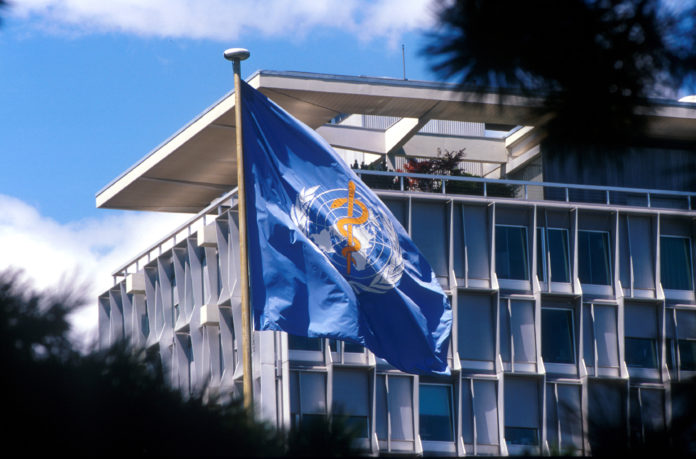On April 7, World Health Day, the World Health Organization celebrates its 70th anniversary. Over the past seven decades, WHO has spearheaded efforts to free the world from killer diseases such as smallpox, and to combat fatal habits such as smoking.
This year, World Health Day is dedicated to one of the WHO's founding principles: "The enjoyment of the highest attainable standard of health is one of the fundamental rights of every human being without distinction of race, religion, political belief, economic or social condition".
"Good health is the most precious thing for each and every one of us," reminds Dr. Tedros Adhanom Ghebreyesus, WHO Director-General. "When people are healthy, they can learn, work and provide for themselves and their families. When they're sick, nothing matters. Families and communities come second. That's why WHO is so committed to ensuring good health for everyone."
With its 194 Member States, grouped into six Regions, and working from over 150 offices, WHO shares with its staff the commitment to achieve better health for all, everywhere - and to reach the sustainable development goal of "enabling all people to live in good health and promoting well-being for all at all ages".
This year's World Health Day slogan is "Universal health coverage: for everyone, everywhere."
70 years of progress
Life expectancy has increased by 25 years worldwide since the WHO was founded. Some of the most important advances concern the health of children under 5: in 2016, the number of children who died before reaching their fifth birthday was reduced by 6 million compared with 1990. Smallpox has been defeated and polio will soon be eradicated. Many countries have successfully eliminated measles, malaria, crippling tropical diseases such as Guinea worm and elephantiasis, as well as mother-to-child transmission of HIV and syphilis.
Bold new WHO recommendations for earlier and simpler treatment, combined with efforts to facilitate access to less expensive generic drugs, have helped 21 million people obtain life-saving HIV treatment. The plight of over 300 million people chronically suffering from hepatitis B and C is finally receiving global attention. And innovative partnerships have produced effective vaccines against meningitis and Ebola virus disease, as well as the first ever vaccine against malaria.
Produce international reference materials
Since its inception, the WHO has brought together the world's leading health experts to develop recommendations and reference materials of international scope: from the International Classification of Diseases - currently used in some 100 countries as a common standard for reporting diseases and identifying health trends, to the Essential Medicines List - a guide for countries on the key medicines needed by every national health system. In the coming weeks, the Organization will publish the first international Essential List of Diagnostic Products.
Making a difference in the field
For decades, WHO staff have been working alongside governments and health professionals in the field. In the early years, the fight against deadly infectious diseases such as smallpox, polio and diphtheria was a major priority. The Expanded Program on Immunization, created by the WHO in the early 1970s, enabled millions of children to benefit from protective vaccines, with the help of UNICEF, Gavi (the Vaccine Alliance) and others. The WHO estimates that 2 to 3 million deaths are prevented every year thanks to vaccination.
Meeting new challenges
In recent decades, there has been an increase in non-communicable diseases worldwide, including cancer, diabetes and heart disease. These diseases now account for 70% of all deaths. As a result, the WHO has shifted its focus, along with health authorities worldwide, to promote healthy eating, physical activity and regular medical check-ups.
The Organization has led global health campaigns on diabetes prevention, hypertension and depression. It also led negotiations on the WHO Framework Convention on Tobacco Control, a formidable tool to help reduce disease and death caused by smoking.
Using data to target our efforts
Tracking progress in all these areas requires a robust monitoring system. Data collected from countries around the world is stored and shared through the WHO's Global Health Observatory. This powerful tool gives countries an accurate picture of who is getting sick where, and which disease is responsible, so they can direct efforts where they are most needed.
Stay on constant alert
Every year, the WHO studies the evolution of influenza, in order to define the vaccine components for the following season. And it remains on constant alert for the threat of pandemic influenza. One hundred years after the influenza pandemic of 1918, WHO is convinced that the world should never again face such a threat to its health security.
The constant drive to prevent outbreaks turning into epidemics, and to respond better and faster to humanitarian emergencies, has led to the creation of a new health emergency management program that operates at all three levels of the Organization. WHO currently responds to outbreaks and humanitarian crises in over 40 countries.
Next month, at the World Health Assembly, the Organization will propose an ambitious new program built on the lessons learned and experience gained over the past 70 years. The aim is to bring universal health coverage to an additional 1 billion people; to protect an additional 1 billion people from health emergencies; and to enable an additional 1 billion people to enjoy better health and well-being - by 2023, the halfway point in the 2030 Agenda for Sustainable Development.


